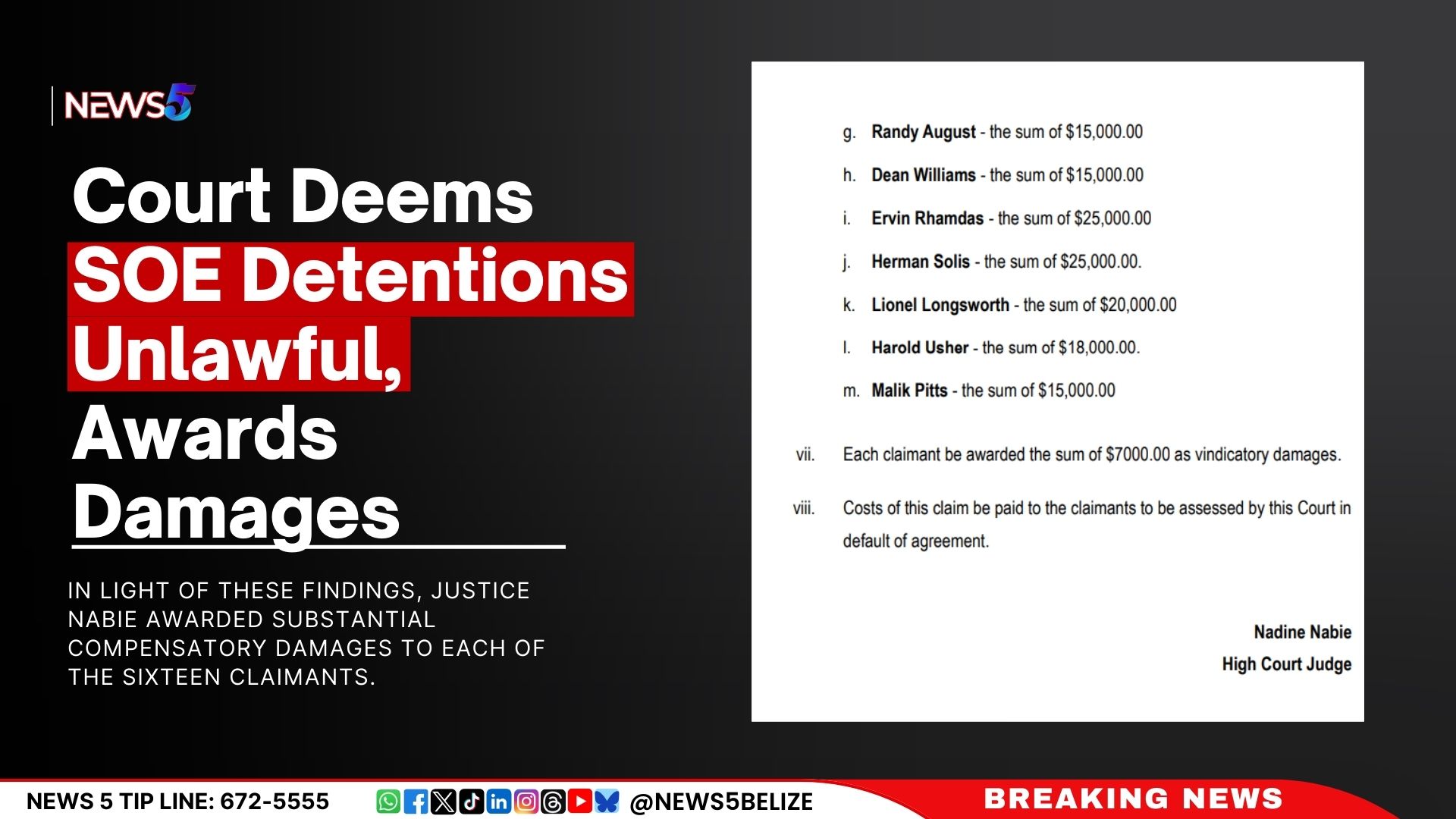The Belize High Court has delivered a judgment, finding that the detention of sixteen individuals during the State of Public Emergency declared in July 2020 was unconstitutional. Justice Nadine Nabie presided over the case, which centered on the legality of the actions taken by the Belize Police Department under Statutory Instrument No. 97 of 2020.
The claimants, Jahreem Staine, John Grinage, Sheldon Grinage, Shemar Mortis, Earl Baptist, Sanjay Lino, Akeem Bermudez, Micheal Flowers, Gilbert Belisle, Randy August, Dean Williams, Ervin Rhamdas, Herman Solis, Lionel Longsworth, Harold Usher, and Malik Pitts, challenged their detention, arguing that it violated their fundamental rights.
The court’s ruling specifically highlighted that the detentions infringed upon the claimants’ right to protection of the law, as enshrined in Section 3(a) of the Belize Constitution. Justice Nabie stressed the importance of fundamental justice and the rule of law in safeguarding individual liberties. The court found that the State failed in its constitutional duty to provide judicial oversight concerning those detained during the State of Emergency, contravening Section 19 (1) (c) of the Constitution.
A key aspect of the judgment was the court’s declaration that the extension of the State of Emergency for an additional two months was not justified by the prevailing circumstances at the time.
In light of these findings, Justice Nabie awarded substantial compensatory damages to each of the sixteen claimants. The amounts varied, reflecting the individual circumstances of their detention, ranging from $12,000 to $25,000. For instance, John Grinage was awarded $12,000, while Ervin Rhamdas received $25,000. Additionally, each claimant was granted $7,000 in vindicatory damages, acknowledging the violation of their constitutional rights. The court also ordered the Attorney General to pay the claimants’ legal costs.
